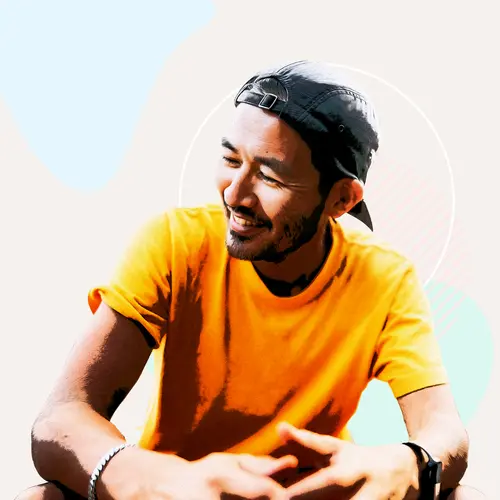By Michelle Weinberger Winer, as told to Hope Cristol
I have four kids and I’m a pediatric physical therapist. It’s not that I don’t have pain all the time. I just don’t let it stop me.
I think part of that is I’ve been in pain basically my whole life. I started having knee pain around 10 years old. It went away more or less on its own in college, but when I was in physical therapy school, I developed back pain. That never went away. Then I started to get more pain in other parts of my body.
My husband and father, both doctors, put their heads together. They noticed I always seemed to be injured without ever having an injury. That, plus my one small area of psoriasis skin symptoms, led them to suspect I had psoriatic arthritis (PsA).
When I told my doctor about this, he completely dismissed it. My bloodwork was normal, as were my X-rays. He just said, “No, you don’t have that.” I couldn’t even get a referral to a specialist, which my insurance at the time required. Only after I moved to a new city, with new insurance and new doctors, did I finally get a diagnosis of PsA and the treatment I needed.
Medication Ups and Downs
The first drug I took that made a difference in my pain was a 2-week course of steroids. When that worked, helping to confirm the PsA diagnosis, my doctor put me on methotrexate. I did well on it for a year and a half.
There were minimal side effects: skin infections where I shaved and mouth sores when I was around stressful people. Bleach baths helped with the skin infections. For the mouth sores, I learned that if you increase the amount of folic acid you’re taking, it decreases those symptoms.
The bigger problem was that I still had a lot of hand symptoms: trouble using my hands to shift my weight, open a can, lift a pot. So my doctor added a biologic drug to the methotrexate. This combination worked to get my pain in check. I also take daily naproxen (a nonsteroidal anti-inflammatory drug, or NSAID) and sometimes use an NSAID medication on my skin.
Physically, everything was going pretty well until last April. We’d planned a summer trip to Israel, but Israel was having a measles outbreak. I had tests to see if I still had protection from my childhood measles vaccines. It turned out I didn’t, so I would need to get the vaccines again.
The problem for me was that you can’t get the vaccines while on immunosuppressant medications. I had to go off the methotrexate and biologic. And when my doctor put me back on the biologic [without methotrexate], it didn’t seem to work. The pain just kept getting worse.
Now I have a lot of back pain and a lot of pain in other joints. I recently switched to another biologic drug, but it’ll be a few months before I know if it’s helping.
Living With Psoriatic Arthritis
I’ve been told I have a high pain tolerance; I had three natural childbirths. But there are other reasons I don’t let pain stop me.
Distraction is huge. When I come home from work, some days I can barely walk -- but at work all day I managed to walk. I’m also up and down on the floor all day. Some days I work with kids who are on horseback and use the horse’s movement to treat them. I love my job, and I know it distracts me from thinking about the pain.
My children come first. My kids are also dealing with pain, different types and different situations. I try not to show them the extent of my pain. I don’t want them to see me wincing all the time. I need to be there for them first.
Kitchen hacks help. Wearing wedges in the kitchen gives me about 2 extra inches of height. That gives me a little more leverage and enables me to lean down more instead of reaching up. To help my grip, I slide pipe insulation over the thin handle of utensils. It makes it easier to hold a spatula or stir a pot of pasta.
I cut out certain foods. I know the researched is mixed on this, but I think it helps me to be off gluten and off nightshade vegetables like potatoes and tomatoes. If it’s a placebo effect, I’ll take the placebo effect!
I have perspective. My husband is a surgical oncologist. He cuts cancer out of people. He cuts people open and pours heated chemotherapy into their abdomens. Pain impacts my life for sure, but compared to having major cancer surgery, I can handle this.

